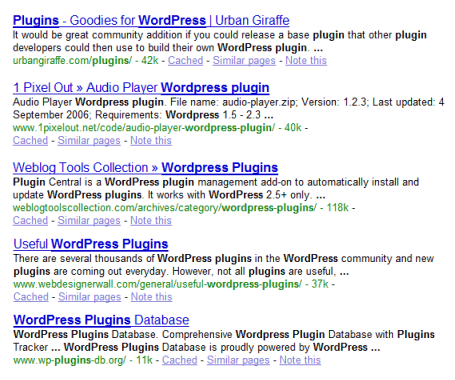6 Quick Ways to Choose a Good Keyword


It takes a lot of people a long time for them to choose a quality keyword for their website or for a specific blog post. There are tools like Wordtracker that allow you to test out keywords you’ve already thought up, but little that helps you actually choose a good keyword to test in the first place. Here are a few key principles you can follow in order to come up with a solid keyword fast.
Know what’s not necessary already.
A little research goes a long way. Knowing that the meta keywords tag and other aspects of the process aren’t necessary to have success in search engine results will save you valuable time every time you’re working on SEO.
Don’t go too niche with your keyword.
When thinking up possible keywords, make sure that you’re reaching a fairly sizable subset of the larger audience of people who would be interested in what you’re selling. Even if you’re writing about a very specific subject in the blog post, it would likely be more beneficial to have a keyword that allows people with something less specific but related in mind to find you.
Don’t go too broad with your keyword.
There are a lot of people competing for that front page of Google or Bing or Yahoo (mainly Google), so don’t expect a keyword like “event planning” get your event planning company at the top of the search engines. Even if you specify your city after it, it’s unlikely you’ll crack the first page at first. Be wary of those broad, oft-searched words and phrases if you want to choose a good keyword.
Don’t go too short with your keyword.
Even if the word or phrase you’re using is uncommon, there’s a good chance that it has already been “spoken for” by other marketers optimizing their sites, blog posts, etc. if it’s not very long. To choose a good keyword you should usually be brainstorming phrases that are three words or longer.
Don’t go too long with your keyword.
While there are too many people vying for the short keywords, there are too few people searching for the extremely long phrases. If your long phrase really seems like something searchers would type out completely, then it might be worth using Wordtracker to see if it’s a viable choice. But as a general rule of thumb, long keywords are likely to get you less clicks.

Don’t limit yourself to sensical words or phrases.
If you look back on your Googling history, you’ll probably notice that sometimes what you put into a search engine is bizarre. You don’t write in complete sentences. In searches that have multiple words, the words may be in an atypical order. Get in the mindset of someone who is rushed while typing something into Google. Brainstorm as many words and phrases that wouldn’t make sense if spoken aloud but seem completely rational in the mind of someone doing a quick search on the internet.
Get into the mindset of a searcher.
The most important thing to keep in mind if you want to choose a good keyword is to not approach the search process from your perspective. Rather than looking for a keyword as a seller, get into the head of a potential buyer. Jot down as many different kinds of searches that you can think of which fulfill the needs of someone who might want to visit your website or blog, and you have a better chance at finding some success.

